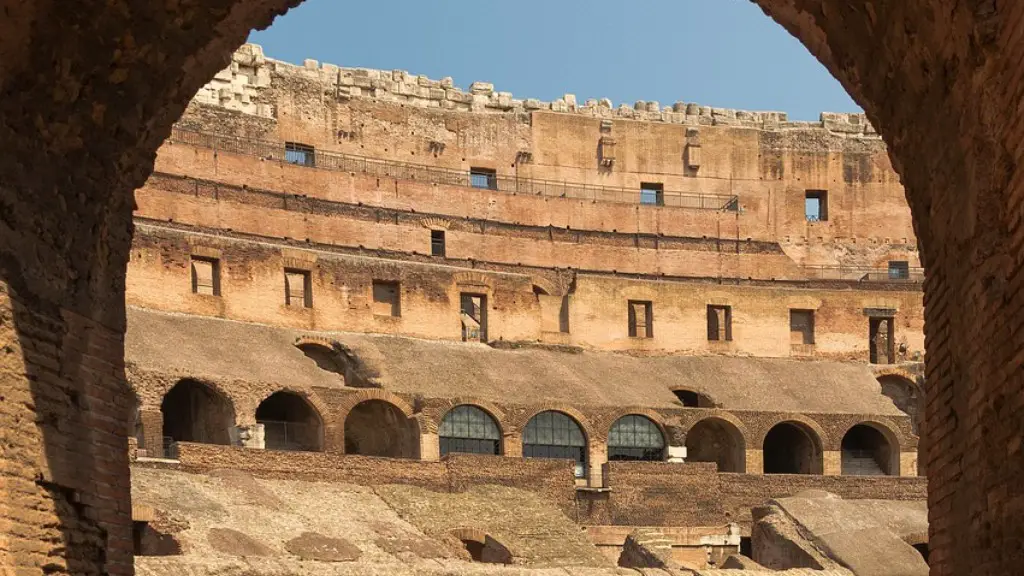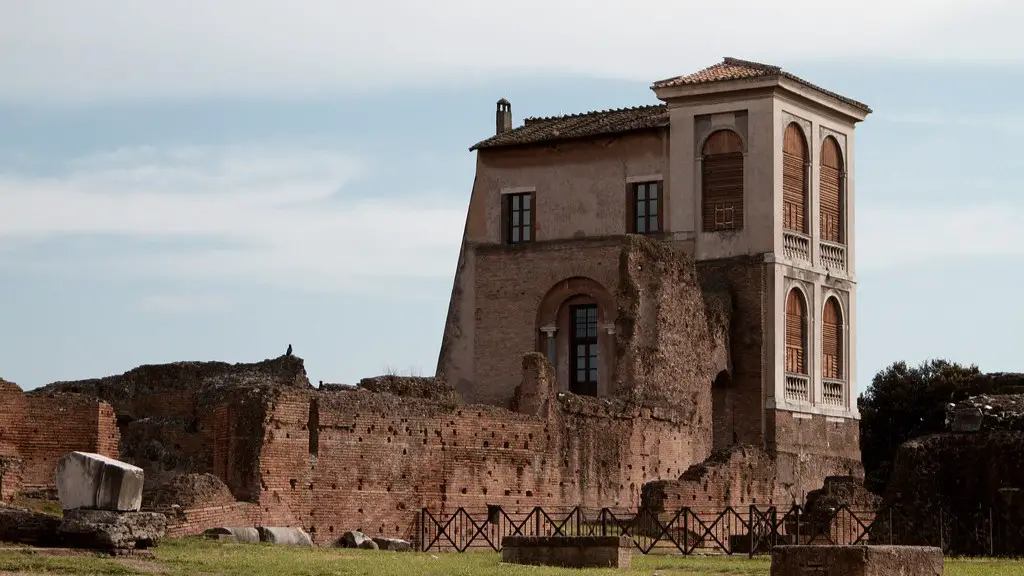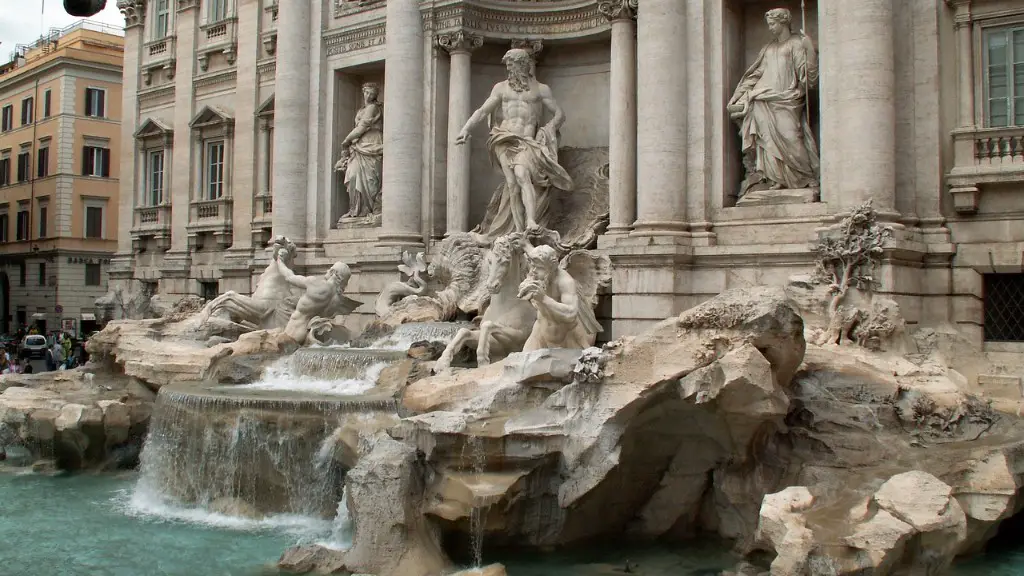Ancient Rome and Its Conquering of New Lands
Rome was one of the most powerful and influential empires of the ancient world. It had a remarkable ability to conquer territories, create a society based on law, and build a vast network of roads and other infrastructure that would forever shape the development of the Mediterranean world. But just how vast was the area that Rome was able to conquer? This article will explore the different lands that Rome conquered, as well as provide insights and analysis into the success of Rome in its various conquests.
It is estimated that, at its largest extent, Ancient Rome occupied up to 2.5 million square kilometers of land, stretching from Britain in the northwest to the Levant in the east. In it’s prime, Rome had established provinces or imperial possessions in western and northern Europe, the Middle East, the North African coast, the Atlantic coast of North Africa, and parts of modern-day Italy and Greece. The Roman Empire also briefly occupied parts of modern day Germany, Austria, Czech Republic, Slovakia and Hungary.
The Roman conquests were both swift and efficient. Many of the lands that Rome conquered were already in turmoil and disarray before Rome’s arrival and Roman armies were able to quickly and effectively take control. Furthermore, Rome’s use of diplomacy and its widely respected legal system contributed to its success in such conquests. Roman generals typically made agreements with local powers in order to preserve their rights and avoid unnecessary conflict.
However, Rome’s conquests were not always successful. In the year 53 BCE, Rome was defeated at the Battle of Carrhae near modern day Turkey. The loss forced Rome to accept a peace treaty that left much of its eastern border region, including Syria and Palestine, still beyond its control. This failure to secure its eastern borders meant that Rome was never able to fully expand its reach in that area.
The Roman Empire was able to maintain control of the lands it had conquered for hundreds of years by relying on a number of strategies. One of the most important of these was the use of imperialism, which allowed Rome to impose its own laws and customs on the conquered lands in order to better control them. Additionally, Rome used military strength and political maneuvering in order to extend its reach and, ultimately, consolidate its power over the territories it conquered.
Overall, Ancient Rome was a powerful empire that was able to conquer vast lands across the Mediterranean world and beyond. Its success as an empire rested on its effective use of military, legal, and diplomatic strategies. This allowed Rome to maintain control over its territories for centuries and to exert a profound influence on the development of western civilization.
Roman Expansion In the Mediterranean
Ancient Rome’s conquests were not limited to Europe. The Mediterranean Sea was an important area for Roman expansion. In the first century BCE, Rome came to control the coasts of North Africa and the Middle East, as well as parts of what is now the southern Mediterranean coastline.
The Mediterranean region was of great strategic importance as it had access to trade routes that connected the Roman Empire to India and the Far East, which produced valuable goods such as silk, spices and precious metals. This access was also instrumental in spreading Roman culture throughout the region.
To ensure control of the region and its trade routes, Rome had to construct a network of roads that connected it to the Mediterranean Sea. These roads allowed the Roman soldiers to rapidly travel to any part of the Mediterranean and respond to any challenge quickly. The roads also improved the ability of Rome to control areas it had conquered, allowing for the swift and efficient enforcement of Roman laws and customs.
In addition to the construction of roads and trade networks, Rome also employed a wide variety of political and military tactics in order to expand and maintain its control over the Mediterranean region. Rome used a combination of divide-and-conquer strategies, alliances, and diplomacy in order to arrive at favorable outcomes with its rivals. In this way, Rome was able to create a stable and profitable region for its own benefit.
Ancient Rome’s domination of the Mediterranean Sea was an important factor in its success as an empire. Rome’s control of the region allowed it to access a wide variety of goods and resources, which fueled its expansionist aspirations. Furthermore, it also allowed Rome to spread its own culture and values throughout the Mediterranean, creating a lasting legacy that continues to shape the world today.
Roman Conquest In Britain and Europe
Rome’s domination of the Mediterranean Sea was paralleled by its conquests in Britain and Europe. In 55 BCE, Julius Caesar led the first successful Roman invasion of Britain, an area that had proved resistant to previous attempts by other empires to colonize. Over time, Rome’s foothold in Britain expanded, eventually culminating in a period of full-scale Roman rule over the region.
Rome’s success in Britain was partly due to its more organized approach to warfare. Whereas previously, Britain had resisted the Romans on a tribal basis, Rome created a much more coherent military structure in which commanders could more quickly and effectively respond to challenges. Rome also used a variety of legal and diplomatic strategies in order to maintain control over Britain and other conquered lands in Europe.
The conquest of Britain and other parts of Europe by Rome had a number of long-term effects. For one, it allowed for the spread of Roman culture to these areas and the development of a new language, Latin, that united Roman citizens from many different regions. Furthermore, it also allowed Rome to control key trade routes in the region, as well as to secure resources, such as gold, tin, and lead.
Rome’s success in Britain and Europe was a testament to its power and influence as an empire. Its control over the region allowed it to expand its reach and to ensure that trade and other resources flowed freely throughout the empire. As a result, the conquest of Britain and Europe was a critical factor in Rome’s success as an empire.
Roman Expansion Into North Africa
The Roman Empire also extended its reach southward to North Africa, conquering large parts of the continent. During the time of Julius Caesar, Rome controlled much of present-day Libya and Tunisia, while under Emperor Trajan, the Romans took control of Egypt and other parts of the African continent.
Rome’s success in North Africa was due largely to its use of large, well-equipped armies. This allowed the Romans to quickly take control of the region, as well as to impose their will upon the local population. Additionally, the construction of a network of roads connecting North Africa to the Mediterranean helped the Romans exercise control over the region.
Roman control of North Africa had a number of long-term implications for the area as well as for the larger Roman Empire. Roman rule brought a period of relative stability to the region, allowing for the development of trade networks and the spread of Roman culture into the area. Additionally, new crops and agricultural techniques were introduced, which helped improve the region’s economy.
Rome’s conquest of North Africa was an important factor in the success of the empire. By gaining control of an important region of the Mediterranean Sea, Rome was able to access valuable resources and trade networks that contributed to its success and prosperity. Furthermore, it allowed Rome to spread its culture and values to a large area of the world.
Roman Expansion Into Southern Europe and the Balkans
Rome’s conquests were not limited to the Mediterranean. Ancient Rome expanded to the north, conquering parts of Southern Europe and the Balkans. During the reign of Augustus, Rome controlled Spain, Gaul, and the lands of modern-day Italy and Austria.
Rome’s success in Southern Europe and the Balkans was due to its advanced military capabilities. Rome’s powerful armies could quickly take control of the region’s rugged terrain and its use of tactical strategies such as divide-and-conquer allowed it to establish a firm foothold in the area.
The conquest of Southern Europe and the Balkans by Rome had a number of long-term effects. It allowed Rome to exercise control over the region and its resources, as well as to spread its culture and its legal system to the people of the region. It also opened up the region to more trade, which helped to improve the economy of the Roman Empire.
Rome’s conquests in Southern Europe and the Balkans were an important factor in its success as an empire. By gaining control of these rugged lands, Rome was able to expand its reach and dominate a large area of the world. Furthermore, it also allowed Rome to access resources and trade routes that strengthened its economy and ensured its longevity as an empire.
Native Responses to Roman Expansion
It is important to consider the impact of the Roman conquest on the indigenous people of the lands that were conquered. While it can be argued that some people benefited from Roman rule, there is no doubt that many people suffered as a result of the Roman conquest. Indigenous populations faced various forms of oppression and exploitation, such as taxation and forced labor, which had devastating effects on their way of life.
The native people of the lands that Rome conquered also faced religious persecution. The Romans were highly intolerant of other religions and sought to impose their own beliefs on other cultures. This was often done through forceful conversions and the destruction of native religious sites and monuments, which had a hugely detrimental impact on local religious beliefs and practices.
It is clear that the Roman conquest had a profound impact on the native people of the lands it conquered. While Rome’s expansion was beneficial in many ways, it also had devastating consequences for the people of the lands it conquered. This is an important factor to consider when examining the success of Rome as an empire.





